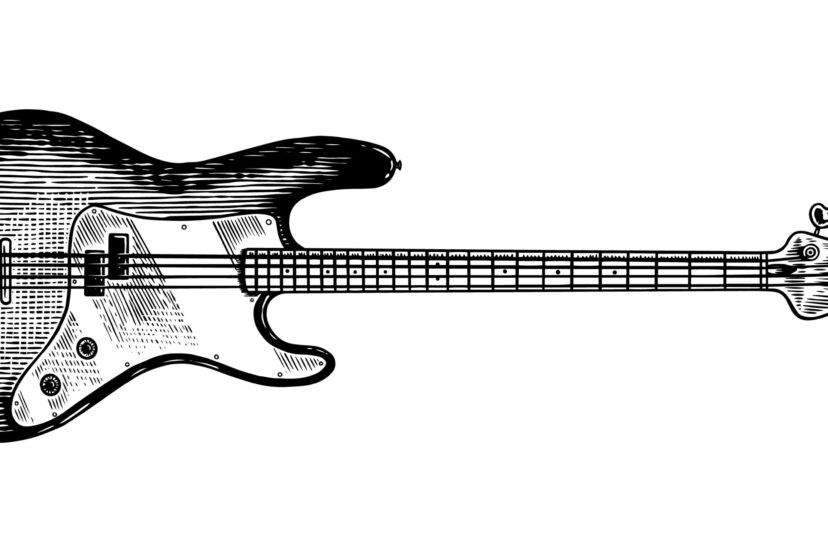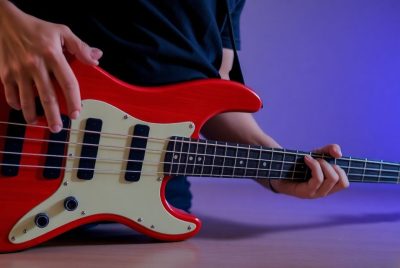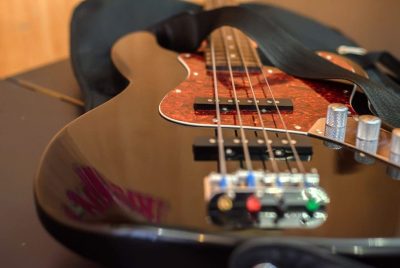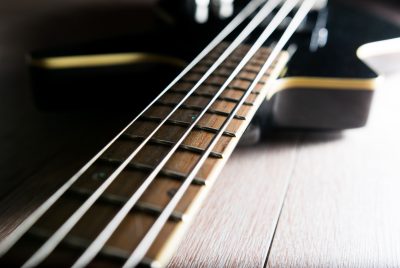Bass Guitar Speed: A Comprehensive Guide
Introduction to Bass Guitar Speed
Ever found yourself in awe of a bassist’s ability to play fast without losing the groove? That’s the magic of bass guitar speed! As an enthusiast myself, I’ll guide you through the path of achieving speed without compromising on precision or musicality.
The Importance of Speed in Bass Guitar Playing
Speed in bass guitar playing isn’t about showing off or mindless finger exercise. Rather, it allows you to express yourself fully, providing you with a broader range of musical vocabulary. Now, let’s get down to the nuts and bolts of bass guitar speed.
The Anatomy of Bass Guitar Speed
Understanding the mechanics is crucial in mastering speed. The technique is primarily divided into two areas: left-hand and right-hand techniques.
Left Hand Techniques
Finger Independence
Just like an Olympic sprinter uses every muscle efficiently, a bassist must ensure each finger on the fretting hand is independent and robust. Regular finger exercise helps develop strength and independence, enabling faster playing over time.
Fretboard Navigation
Fretboard navigation for bass guitar involves understanding and mastering the layout of notes across the fretboard to play music efficiently and expressively. This skill is crucial for bassists of all levels, as it enables them to move seamlessly across the neck, find notes quickly, and create bass lines that complement the music. Here’s a brief overview of key concepts in fretboard navigation:
- Note Names and Octaves: Knowing the names of the notes on each string at various fret positions is foundational. The bass guitar is typically tuned E-A-D-G, and each fret represents a half-step increase from the open string note. Familiarity with note names and their octaves across the strings allows for quicker recall and more musical playing.
- Patterns and Shapes: Bass playing relies on patterns and shapes, such as scales, arpeggios, and chord tones, that repeat across the fretboard. Learning these patterns in various positions enables bassists to navigate the fretboard with confidence and develop fluid lines.
- Intervals: Understanding intervals, or the distance between notes, is key to fretboard navigation. Recognizing the physical spacing for intervals on the fretboard helps in constructing bass lines and improvising.
- Position Playing: This involves playing within a certain area of the fretboard before shifting to another position. It’s a method that reduces unnecessary movement and promotes efficient use of the hand. Mastering position playing helps in accessing a wide range of notes without frequent hand shifts.
- The Cycle of Fourths/Fifths: Knowing the cycle of fourths and fifths is beneficial for understanding how keys are related and navigating chord changes smoothly. This knowledge aids in moving between different parts of the song and linking scales and arpeggios across the fretboard.
- Muscle Memory: Regular practice helps develop muscle memory for common patterns and locations of notes. This allows bassists to play without having to look at the fretboard constantly, making it easier to interact with other musicians and engage with the audience.
- Ear Training: Developing a good ear is essential for effective fretboard navigation. Being able to recognize intervals, chords, and scale patterns by ear helps in translating musical ideas to the fretboard quickly and accurately.
Fretboard navigation is a skill developed over time, with practice and playing experience. Combining theoretical knowledge with practical application enables bassists to explore the fretboard creatively, making their playing more versatile and expressive.
Right Hand Techniques
Plucking Efficiency
Plucking efficiency on the bass guitar is about optimizing the motion and technique used to produce sound from the strings, ensuring that you can play both quickly and expressively without unnecessary strain or fatigue. This involves several key aspects of right-hand technique (or left-hand for left-handed players) that enable bassists to maintain control, speed, and dynamics over their playing. Here’s a brief overview of the main components for achieving plucking efficiency:
- Economy of Motion: This principle involves minimizing the movement of your plucking hand to increase speed and reduce fatigue. Small, controlled motions allow for quicker response and smoother transitions between notes.
- Finger Alternation: Consistently alternating between the index and middle fingers (and sometimes incorporating the ring finger for advanced techniques) when plucking strings ensures a more fluid playing style and helps maintain rhythm and speed over extended periods.
- Plucking Angle and Position: The angle at which the fingers strike the strings can affect the tone and volume of the note produced. Efficient plucking often involves a slight angle to the string, pulling across it rather than directly away, to produce a fuller sound with less effort.
- Rest Strokes vs. Free Strokes: Rest strokes, where the finger comes to rest on the next string after plucking, can provide more power and control, especially for lower strings or when playing forcefully. Free strokes, where the finger does not touch the adjacent string, allow for quicker, lighter playing. Mastery of both techniques is beneficial for dynamic playing.
- Floating Thumb Technique: For bassists who play using their fingers, the floating thumb technique, where the thumb moves across the pickups or strings to mute unused strings and provide a stable anchoring point, can significantly reduce unwanted noise and increase precision.
- Consistent Attack and Volume: Developing the ability to pluck strings with consistent force and volume across different playing contexts is crucial for a balanced sound. Practicing dynamics (soft to loud playing) can enhance your control over the instrument.
- Relaxation: Keeping the wrist, hand, and fingers relaxed is vital to prevent strain and injury. Tension can slow down your playing and lead to fatigue quicker. Regular breaks and stretching exercises can help maintain hand health.
- Regular Practice: Like all aspects of musicianship, regular, focused practice is essential for developing plucking efficiency. Exercises that focus on speed, accuracy, and dynamics can all contribute to more efficient plucking technique.
Improving plucking efficiency not only enhances the quality and expressiveness of your bass playing but also helps in preventing injuries by promoting a more natural, relaxed technique. Whether playing fast passages, complex rhythms, or maintaining a groove, efficiency in your plucking hand is key to a rewarding performance.
String Muting
String muting is a crucial technique for bass guitarists aiming to control unwanted noise and produce a clean, tight sound. It involves selectively damping the strings that are not being played to prevent them from ringing out and creating a muddy or overly resonant tone. Effective string muting enhances the clarity and precision of your bass lines, making it an essential skill in both live and studio settings. Here’s a brief overview of how string muting can be achieved on the bass guitar:
- Left-Hand Muting: This technique involves using the unused fingers of the fretting hand to lightly touch and thus mute the strings that are not being played. For example, when playing a note on the G string, the index or middle finger can rest on the D string to keep it from vibrating.
- Right-Hand Muting: Right-hand (or plucking hand) muting is done by resting the palm, thumb, or unused fingers on the strings that are not in use. This is especially useful for controlling the lower, thicker strings, which can produce a lot of unwanted resonance.
- Floating Thumb Technique: The floating thumb technique is particularly effective for muting the lower strings. The thumb floats above the strings and rests lightly on the E or A strings (depending on which string is being played) to mute them. As you move across the strings, the thumb moves as well, always keeping the unused strings muted.
- Palm Muting: By resting the edge of the plucking hand’s palm near the bridge while plucking the strings, you can produce a muted, percussive sound. This technique is often used to create a rhythmic, chunky effect that sits well in a mix, especially in rock and metal genres.
- Using Both Hands: Combining left-hand and right-hand muting techniques offers the most control over unwanted string noise. By coordinating both hands, a bassist can mute the strings not in use, regardless of where they are on the fretboard or which strings are being played.
Mastering string muting requires practice and awareness of both hands’ roles in producing clean, articulate notes. It’s a skill that greatly contributes to the overall groove and tightness of a band’s sound, allowing the bass to lock in seamlessly with the drums and other instruments. Regular practice of muting techniques, through exercises and incorporating them into your playing, will lead to more professional-sounding bass lines.
Increasing Bass Guitar Speed – Developing a Practice Routine
Slow Practice
Ironically, one of the best ways to play fast is by starting slow. Playing slowly and gradually increasing your speed allows your muscles to develop the required memory for fast playing.
Metronome Use
The metronome is your best friend on this journey. It doesn’t lie or sugarcoat, keeping you honest about your progress.
Exercises for Bass Guitar Speed
Scale Practice
Scales are the gym workout for musicians. Practicing them regularly helps develop dexterity and speed, and teaches you the melodic building blocks of music.
String Skipping Exercises
String skipping exercises for bass guitar are designed to improve dexterity, accuracy, and coordination between the fretting and plucking hands, allowing for more complex and dynamic bass lines that involve non-adjacent strings. These exercises are crucial for bassists looking to enhance their ability to navigate the fretboard with precision and to incorporate more intricate rhythms and melodies into their playing. Here’s a brief overview of how to approach string skipping exercises:
- Basic String Skipping: Start with a simple exercise that involves playing a note on the E string, then skipping to the D string, and back. Use alternate fingering in the plucking hand (index and middle fingers) to build consistency and control. Repeat the pattern while maintaining a steady rhythm, then incorporate the A and G strings into your practice.
- Scales and Arpeggios: Practice scales and arpeggios with intentional string skips. For example, play a major scale but skip from the root note to the third, fifth, and so on, instead of moving to the immediate next scale degree. This will help familiarize your hands with the distances between strings and improve your musical vocabulary.
- Chromatic Exercises: Implement chromatic exercises involving string skips to enhance finger strength and independence. Start on the lowest string and play four chromatic notes (e.g., E, F, F#, G), then skip to a non-adjacent string and repeat the pattern. Gradually increase the speed as your comfort level grows.
- Rhythmic Variations: Incorporate rhythmic variations into your string skipping practice. Use different note values, such as quarter notes, eighth notes, and sixteenth notes, and mix rhythms to develop your timing and precision. This will also help in making your string skipping musically expressive.
- Use of a Metronome: Practice with a metronome to ensure tight timing and rhythmical accuracy. Start slowly to ensure clean execution of the skips, then gradually increase the tempo as you become more comfortable with the movements.
- Incorporate into Musical Contexts: As you become more proficient, start incorporating string skipping into riffs, bass lines, and solos in a musical context. This will help you apply the technique in a practical setting and develop your unique style.
String skipping exercises can significantly enhance your technical ability on the bass guitar, opening up new possibilities for creative expression. Regular practice, focusing on accuracy and consistency before speed, will yield the best results.
Maintaining Speed and Precision
The Role of Rest
Rest is just as essential as practice. Overworking can lead to injuries and burnout. Rest allows your muscles to heal and come back stronger. Consistency is key in maintaining and increasing speed. Regular, deliberate practice ingrains muscle memory, gradually leading to increased speed.
Conclusion: The Journey to Bass Guitar Speed Mastery
Speed in bass guitar playing is a lifelong journey. Remember, it’s not a race. Focus on progress, not perfection. Keep the rhythm, enjoy the journey, and let the speed follow naturally.
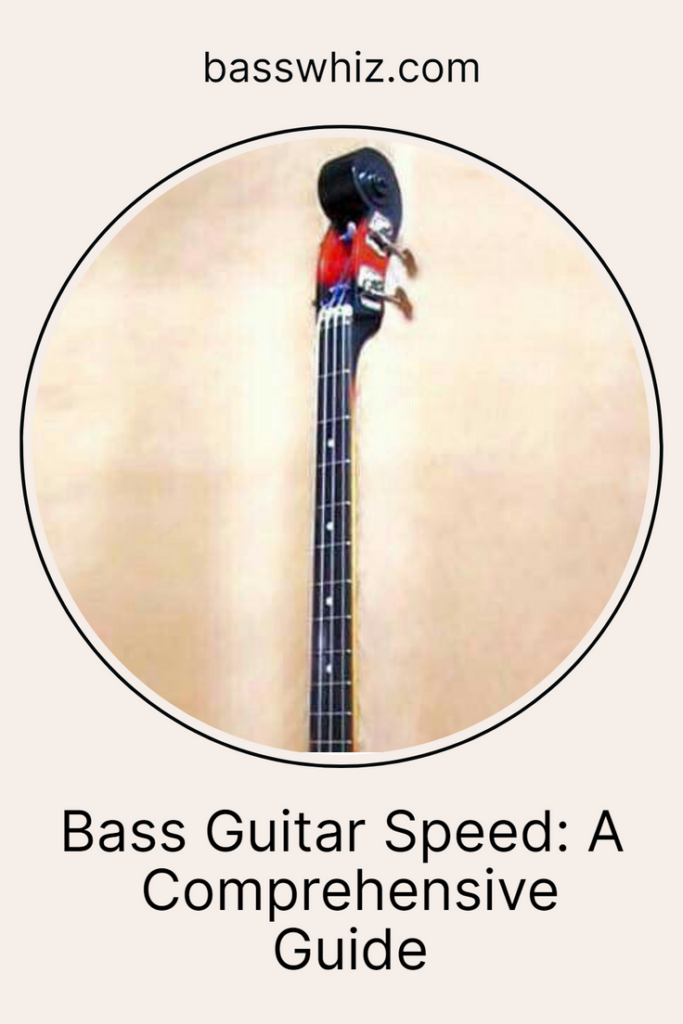
FAQs
What’s more important, speed or precision?
Precision is definitely more important. Speed without precision can lead to sloppy playing. Always focus on accuracy first, then gradually increase speed.
How long does it take to develop bass guitar speed?
It varies from person to person and depends on the amount and quality of practice. Remember, consistent, slow practice is more effective than sporadic, rushed sessions.
Can I achieve speed without a metronome?
While it’s technically possible, a metronome is highly recommended. It helps maintain a consistent pace and gradually increase speed. The other way is to work with a drummer who has great timing/meter.
Does string gauge affect speed?
Yes, lighter strings are generally easier to play fast. However, the difference is minor and should not be used as a crutch for lack of practice.
Does my bass’s action affect speed?
Yes, a lower action can make it easier to play fast. However, if it’s too low, it can cause fret buzz. Find a balance that works for you.

